This week is the traditional Christian “Holy Week,” starting from “Palm Sunday” until “Resurrection Sunday.” Christians groups are flooding into Israel and Jerusalem from around the world to observe the death and resurrection of Yeshua. Many Orthodox and Catholic Christians that come to Jerusalem during these days walk the traditional path of the “Via Dolorosa,” “The Way of Suffering,” a path that commemorates the suffering of the Messiah that include various stations along the way, leading to a traditional place of His crucifixion. On “Good Friday” many will take part in a commemorative walk on the Via Dolorosa with one person carrying a large cross in order to retrace the steps of the Messiah.
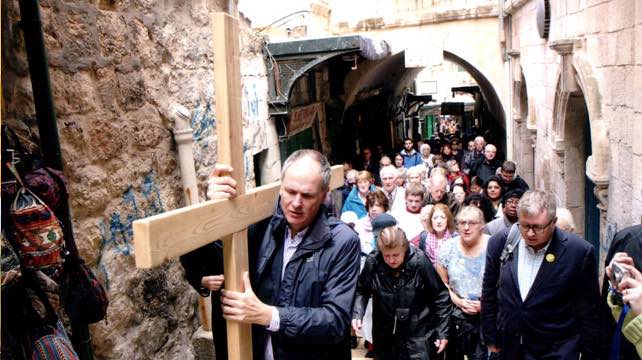
The sign of the cross is the global mark of Christianity that is displayed in the form of gold and silver pendants on chains worn around the neck and large structures that adorn most church buildings. Olive wood crosses are often bought in Jerusalem by Christian tourists as a memento from the “Holy Land” and used to remind people of the sacrifice of Yeshua.
On Palm Sunday, this past Sunday, I attended a service at a local church here in Jerusalem where Canon Andrew White, the vicar of St. George’s Church in Baghdad, was speaking. While Canon White was delivering his message he handed out several wooden crosses to those in attendance. The cross serves as a reminder of the sacrifice that was paid by our Messiah and Savior Yeshua.
The cross is central to Christian theology as it represents the power of God to atone for sin through the sacrifice of the Messiah: “For the word of the cross is foolishness to those who are perishing, but to us who are being saved it is the power of God.” (1 Cor. 1:18) The message of the cross is the power of God to bring life out of death. It is a mysterious message that is often misunderstood by many in this world and, at the same time, I wonder if the message of the cross is also misunderstood by many in the church as well.
Is the message of the cross misunderstood in the church today?
I often hear Christians speak about the message of the cross in their attempt to lead others to faith in Yeshua through “The Four Spiritual Laws,” “The Romans Road,” or some other systematic theological explanation.
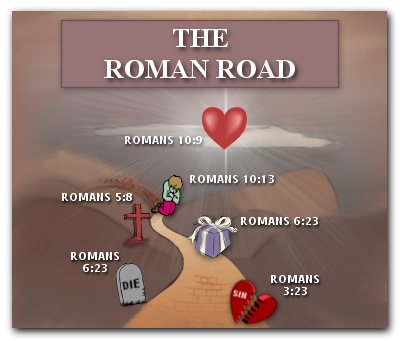
The cross is always the center of these methods, presenting an alternative for the listener to either accept or reject the “cross of Christ.” Is this the message that believers in Yeshua should be sharing with others? Is the cross itself the heart of what God wants people to know, understand, and believe?
There is no denying that the cross of Yeshua must be understood on some level by an individual in order for a person to place his or her faith in God through the Messiah, however, it seems to me that the cross itself is only part of the bigger picture that God intended, the real heart of God. I believe that the essence of the message of what God intended for His people is revealed through this week’s Torah Portion, Leviticus 6-8.
The Sacrifices of the LORD
This week’s Torah Portion is called “צו” – “Tzav” which means “command” in the active sense, “to command.” God was reiterating to Moses the exact way that He wanted the various sacrifices to be carried out:
Then the Lord spoke to Moses, saying, “Command Aaron and his sons, saying, ‘This is the law for the burnt offering: the burnt offering itself shall remain on the hearth on the altar all night until the morning, and the fire on the altar is to be kept burning on it. – Lev. 6:8-9
In the beginning of this week’s Torah Portion God specifies how the burnt offering is to be offered. God is holy and must be approached in a holy manner.
Just as God commanded Aaron and his sons to carryout the burnt offering in a specific manner, so it was with each of the offerings:
This is the law of the burnt offering, the grain offering and the sin offering and the guilt offering and the ordination offering and the sacrifice of peace offerings, which the LORD commanded Moses at Mount Sinai in the day that He commanded the sons of Israel to present their offerings to the LORD in the wilderness of Sinai. – Lev. 7:37-38
Throughout chapters six and seven of Leviticus, God gave Moses and Aaron all of the details for fulfilling each of the sacrifices listed in the above verses. God was actually giving the details regarding the order of the sacrifices for a second time as they were already laid out in the first five chapters of Leviticus.
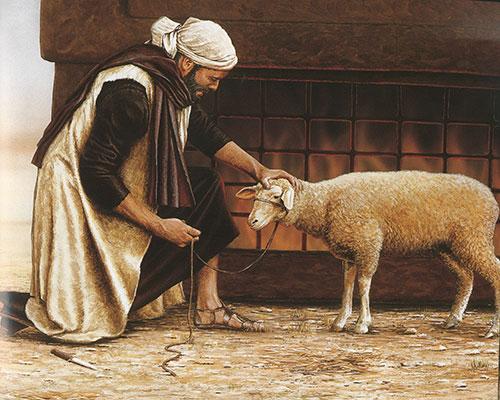
The Intent of the Sacrifices
The sacrifices which God commanded were a means of obedience to God, purification from defilement, and atonement for sin. The sacrificial system, as administered by the high priest, was a means to an end; continuing communication between Almighty God and His people:
It shall be a continual burnt offering throughout your generations at the doorway of the tent of meeting before the LORD, where I will meet with you, to speak to you there. (Ex. 29:38-46).
God had given the daily sacrifice offerings and all of the sacrifices as a means of maintaining a spiritual relationship with His people. God is holy and His people must be holy.
The Connection Between Sacrifices and The Cross
We see the ultimate fulfillment of all of the sacrifices in the cross, which was the means of the final sacrifice. We read in the letter to the Hebrews in the New Testament that Yeshua became the eternal high priest (Heb. 5:1-10) by offering a sacrifice that was better than the ones which were commanded in the Old Testament:
Every priest stands daily ministering and offering time after time the same sacrifices, which can never take away sins; but He, having offered one sacrifice for sins for all time, sat down at the right hand of God, waiting from that time onward until His enemies be made a footstool for His feet. For by one offering He has perfected for all time those who are sanctified. – Heb. 10:11-14
Through His death on the cross, Yeshua provided an eternal sacrifice that made the other sacrifices unnecessary.
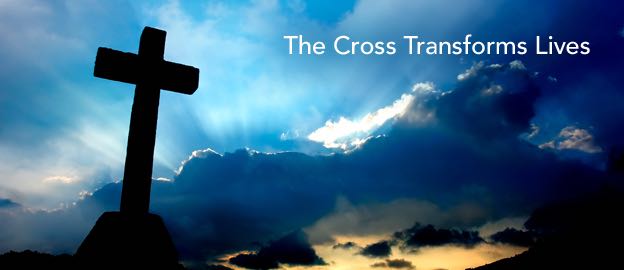
It is as a result of the finished work of Yeshua on the cross that each one of us today can approach God with a clear conscience and sins forgiven (Hebrews 10:19-22). Just as the sacrifices in the Old Testament provided a means of atonement and purification in order to maintain a living connection with God, the sacrifice of Yeshua provides an even better basis of maintaining a spiritual connection with God today.
In understanding the transition from the daily sacrifices that were once offered in the Temple to the final sacrifice of Yeshua we must ask ourselves the question; Is the message of the cross the message of God for humankind today? I personally would respond to this question by answering Yes and No. I believe that the cross is part of the message of God for the world today but it is not the full message and it does not reveal His heart. I will explain my position by continuing with the Scriptures from the Torah Portion.
The Heart of God for His People
We have seen clearly from the Scriptures that the sacrifices in the Old Testament were fulfilled through the final sacrifice of Yeshua. It is often assumed that because God commanded sacrifices to be offered in the Old Testament and then concluded the sacrifices through the sacrifice of His Son, therefore, sacrifice itself is the heart of God. Is this true? Is sacrifice the heart of the message of God for people today?
What was the original intent of the sacrifices? Was the sacrificial system and the Temple worship the heart of what God desired for the Israelites?
I believe that the sacrificial system and the Temple worship were a means to an end, however, God had a greater message for the people of Israel that He wanted them to know and understand. We read of this greater message of God in the corresponding verses from the prophet Jeremiah:
Thus says the LORD of hosts, the God of Israel, “Add your burnt offerings to your sacrifices and eat flesh. For I did not speak to your fathers, or command them in the day that I brought them out of the land of Egypt, concerning burnt offerings and sacrifices. But this is what I commanded them, saying, ‘Obey My voice, and I will be your God, and you will be My people; and you will walk in all the way which I command you, that it may be well with you.’ Yet they did not obey or incline their ear, but walked in their own counsels and in the stubbornness of their evil heart, and went backward and not forward. – Jeremiah 7:21-24
We read in these verses from the prophet Jeremiah that God did not command the Israelites regarding burnt offerings and sacrifices when He brought them out of Egypt. Does this contradict what we read earlier in this week’s Torah Portion, that God did command Moses to instruct Aaron to offer sacrifices according to His command? Is God contradicting Himself through the prophet Jeremiah?
I believe that the answer to these questions reveals the heart of God for His people. God obviously did command the people regarding sacrifices and burnt offerings, however, the sacrificial system itself was not the heart of God for His people. Before God gave the Israelites the sacrificial system or the Levitical priesthood of Aaron, God sent the Israelites the following message:
Moses went up to God, and the LORD called to him from the mountain, saying, “Thus you shall say to the house of Jacob and tell the sons of Israel: ‘You yourselves have seen what I did to the Egyptians, and how I bore you on eagles’ wings, and brought you to Myself. Now then, if you will indeed obey My voice and keep My covenant, then you shall be My own possession among all the peoples, for all the earth is Mine; and you shall be to Me a kingdom of priests and a holy nation.’ These are the words that you shall speak to the sons of Israel.” – Ex. 19:3-6
When God brought the Israelites out of Egypt and brought them to Himself He invited the people to obey His voice and keep His covenant. This was the heart of God for His people Israel and I believe that this is still His heart today.

Obeying the Voice of God
We can see that God was not contradicting Himself in Jeremiah 7:21-24 but rather He was reminding the people of the heart of His message that He wants all people to know and understand: ‘Obey My voice, and I will be your God, and you will be My people; and you will walk in all the way which I command you, that it may be well with you.’ (Jer. 7:23) The simple message of God is “Obey My voice.”
This message of obeying the voice of God is the same message that God gave to Adam and Eve before the fall (Gen. 2:16-17) and it is the same message that God is speaking to us today. When Yeshua took Peter, James, and John up the mountain with Him and Yeshua was transfigured before them, the voice of the Father in heaven spoke these words: “This is My beloved Son, with whom I am well-pleased; listen to Him!” (Matt. 17:5) In other words, God the Father told them to obey the voice of Yeshua!
Yeshua Himself explained to the Jewish people when asked whether or not He was the Messiah: “My sheep hear My voice, and I know them, and they follow Me; and I give eternal life to them, and they will never perish; and no one will snatch them out of My hand.” (John 10:27-28) The heart of knowing God is hearing and obeying His voice. This in no way diminishes the sacrifice of Yeshua on the cross. Yeshua continually spoke of His death and how His followers needed to accept His sacrifice through the taking of the Passover elements, the matzah bread and the third cup of wine, the cup of redemption (Luke 22:14-20).
The cross is a sign of the ultimate sacrifice which was fulfilled in the death of Yeshua. All who desire to be purified and forgiven before God must accept the teaching of the cross of Yeshua as the foundation for relationship with God. At the same time, however, those who believe in the cross intellectually but do not know the voice of God are living a dead religion.
The heart of the message of God is to hear and obey His voice. God Himself comes to each of us in His own unique way and when He invites us to follow Him we have a choice, just like the Israelites, to obey or ignore His voice. Believing in the sacrifice of Yeshua on the cross is paramount to obeying the voice of God. A person cannot say that he or she believes in the God of the Bible and deny the death and resurrection of Yeshua (1 John 5).
The Message of God
The complete message of God is recorded for all of us in His Word, the Bible. From Creation to Revelation there is a perfect account of what God wanted to communicate to mankind. Religion tries to put God in a box and give people a list of things to believe. The heart of God is to communicate directly with each one of us and this is the message that we need to take to the world:
Behold, I stand at the door and knock; if anyone hears My voice and opens the door, I will come in to him and will dine with him, and he with Me. – Rev. 3:20
The message of God is simple, “hear and obey His voice!” If believers in Yeshua around the world would teach the Word of God accurately, including the death and resurrection of Yeshua, while inviting others to hear and obey the voice of God, I believe that this would produce a much healthier body of Messiah.
Shabbat Shalom!
If you enjoyed reading this article, we invite you to sign up for our weekly Torah Portion commentary on the sidebar to the right.
Help keep our weekly commentaries free and available to all. Click here to donate today:
Torah Portion: Lev. 6:8 – Lev. 8:36
Hafatara: Jeremiah 7:21 – Jeremiah 8:3, Jeremiah 9:23-24
Return to Torah Portion Homepage
Copyright Jewels of Judaism. All rights reserved 2016

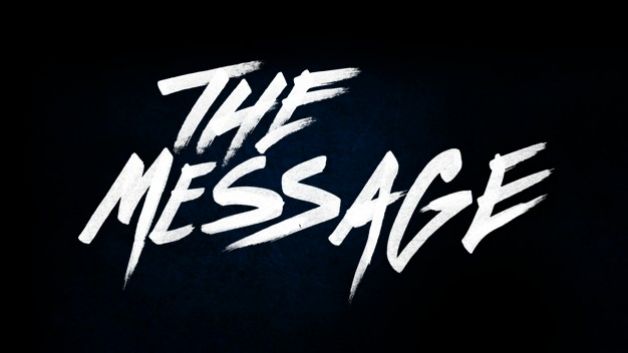

Very powerful message!
Even though I was a bit worried at the beginning when I was reading this article. For the Cross has been the center of the message in the Church for so long and the way you expressed the point might easily to put you into “liberal” or “heresy”.
However, as I continued to read this article, I do like your point and totally agreed with it! The Cross as a sign of forgiveness and delivery of our sins, should lead everyone who believes in Yeshua to obeying God. So when we teach the meaning of the Cross we cannot miss out this important message of hearing and obeying the voice of God. This is what “Christian”, the follower of The Messiah should be.
Thank you Nancy! Yes, I totally agree.
Blessings,
Daniel
Great! I agree completely. Missing is the truth that obeying is the result of salvation and a result of loving Yeshua, Abba… (John 14:15).
Shabbat shalom,
Beautifully put! I totally agree with you.
Even though this is my first post, I wanted you know that i have learned much from your weekly commentaries.
Thank you!
Thank you Batya!
Good to know. The comments are helpful to know how others are finding my articles.
Shabbat Shalom!
Daniel
Really loved this article…clear and precise revelation of the heart of God and the message of the cross.
Thanks!
Thanks Suzanne!
It was a battle all week to put it together and I almost didn’t publish it because I thought it might seem too much of a stretch for my readers. I appreciate the encouragement.
Daniel